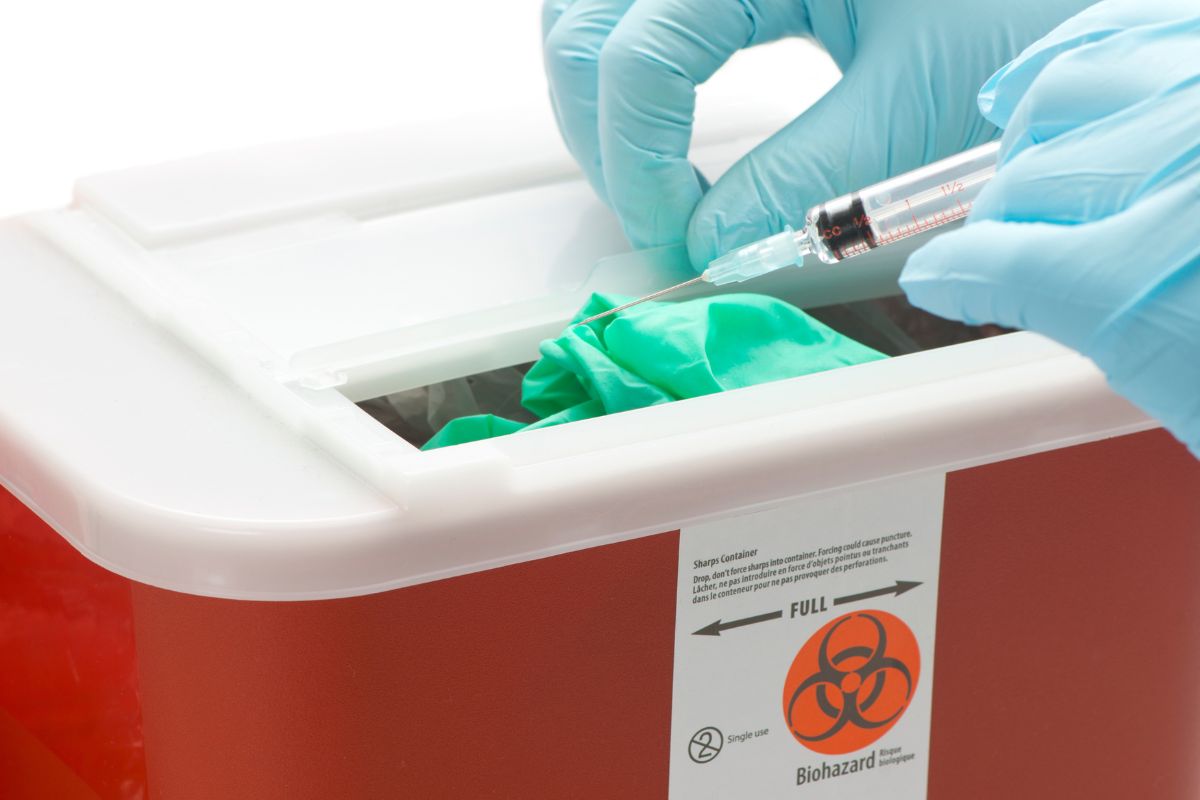Professional Medical Waste Disposal Services: Managing Biohazards
Professional Medical Waste Disposal Services: Managing Biohazards
Blog Article
Liable Solutions: Comprehending Medical Waste Disposal Solutions
In the realm of healthcare, the appropriate disposal of clinical waste is a crucial aspect that requires mindful consideration. As health care facilities produce different kinds of waste that require customized handling, understanding the nuances of medical waste disposal services is vital.
Relevance of Correct Clinical Waste Disposal
Appropriate medical waste disposal is important in maintaining a hygienic and secure setting within health care centers. In medical care settings, numerous types of waste are created daily, including infectious products, sharps, expired medications, and chemical compounds.

Types of Clinical Waste
Within health care facilities, a varied range of waste materials identified as clinical waste is produced, each needing specific handling and disposal methods. Pathological waste, which consists of cells, body organs, and body components, necessitates appropriate disposal to appreciate the dignity of the dead and avoid any type of biohazards. Comprehending the various kinds of medical waste is critical for medical care facilities to apply efficient waste administration techniques and protect public wellness and the atmosphere.
Rules and Compliance
Medical care facilities should follow rigorous policies regarding the handling and disposal of clinical waste to make sure compliance with legal needs and secure public health and wellness. These laws are established to avoid the spread of infections, protect the atmosphere, and keep the safety of healthcare employees and the public. Different regulatory bodies, such as the Environmental Protection Firm (EPA), the Occupational Safety and Health And Wellness Administration (OSHA), and the Division of Transportation (DOT), have particular standards that health care centers need to follow.
To adhere to these laws, healthcare facilities need to effectively segregate, store, transportation, and deal with various sorts of clinical waste. This includes sharps waste, transmittable waste, hazardous waste, and pharmaceutical waste, each needing certain handling procedures. Facilities needs to additionally keep accurate records of waste generation and disposal to demonstrate compliance during inspections.
Non-compliance with medical waste laws can cause extreme penalties, fines, and damage to the facility's track record. For that reason, it is essential for healthcare facilities to remain informed concerning the most recent regulations and execute durable compliance steps to safeguard public health and wellness and the setting.
Advantages of Expert Disposal Services
Involving professional clinical waste disposal solutions supplies healthcare centers a trusted and reliable service for taking care of unsafe materials. These solutions use qualified professionals who are skilled in from this source handling different kinds of clinical waste, ensuring proper segregation, product packaging, disposal, and transport. Medical Waste Disposal Services.
Additionally, why not try this out professional disposal solutions make use of state-of-the-art equipment and comply with sector best practices to reduce ecological impact and decrease the risk of contamination. This not only advertises a much safer job setting for medical care team but likewise contributes to overall public health and wellness and safety and security. In addition, contracting out clinical garbage disposal can lead to cost financial savings in the lengthy run by eliminating the requirement for in-house management and disposal systems.
Lasting Practices in Healthcare

One trick lasting technique in health care is waste decrease. By executing techniques to lower unnecessary product packaging, single-use products, and general waste generation, medical care facilities can dramatically reduce the amount of waste sent out to garbage dumps or incineration. In addition, recycling programs for products like paper, plastic, and glass can additionally reduce the environmental impact of medical care procedures.

Verdict
In verdict, correct clinical garbage disposal is essential in maintaining a safe and healthy environment for both medical care employees and the public. Comprehending the different kinds of clinical waste, check it out complying with regulations and conformity standards, and making use of expert disposal services are vital steps in liable waste management. By adopting lasting methods in healthcare centers, we can reduce ecological impact and ensure the wellness of all people entailed in the medical care market.
As healthcare centers create different kinds of waste that require specialized handling, understanding the subtleties of medical waste disposal services is vital.Within health care facilities, a varied array of waste products categorized as medical waste is produced, each calling for certain handling and disposal methods. Understanding the different kinds of medical waste is crucial for health care centers to implement efficient waste administration strategies and secure public wellness and the atmosphere.
By executing methods to decrease unneeded packaging, single-use items, and total waste generation, healthcare facilities can considerably reduce the quantity of waste sent out to landfills or incineration. Recognizing the different kinds of clinical waste, adhering to guidelines and conformity standards, and using expert disposal solutions are essential steps in liable waste monitoring.
Report this page